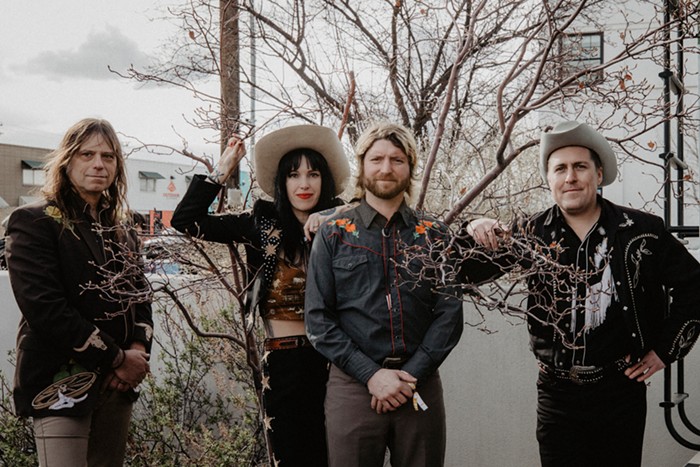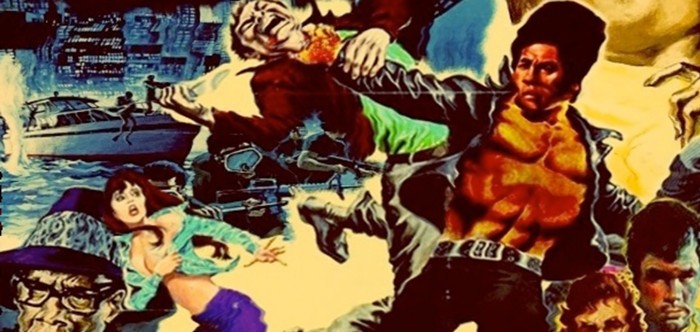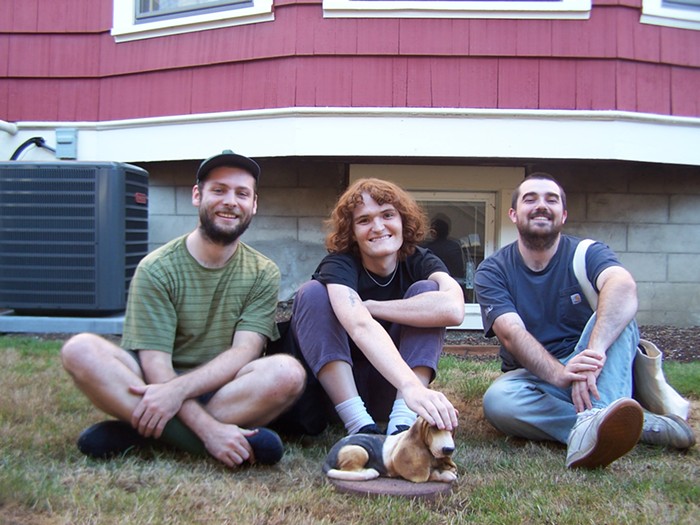These days the Raincoats are most often remembered because of who remembered them: Kurt Cobain recalled in his Incestide liner notes that the British post-punk girl band's 1979 debut album was a life-saving device, a reprieve from his depression and boredom. The plaintive mash note from punk's living Jesus revivified the Raincoats' legacy at a time when we needed it, amid the grunge boom of 1992. Underground, there was riot girl salvation and Fugazi, sure, but up-top cool was Pearl Jam (not yet sanctified, or anything more than macho qua rebellious) and the best-selling album of the year was pre-crack Whitney's last stand, her soundtrack to The Bodyguard.
In 1994, when DGC Records and Rough Trade reissued the trio of records that constituted the Raincoats' discography, the band needed someone to co-sign their ultra-cool. (We can forgive the too-typical fact that rock star-boy approval was necessary to accept the genius girls' work.) Cobain was the acceptable boy bridge to girl culture; he helped pop the escape hatch to a world where Candlebox didn't matter, his endorsement a kind of atonement for the crush of grunge that Nirvana's success accidentally helped seed. Then, 15 years after the inaugural fact, we needed the Raincoats to stave off the boredom and depression. There was still no other band quite like them.
This week Kill Rock Stars reissues the band's self-titled debut album, on vinyl, and the timing couldn't be better. We are mired in an epic wave of aesthetics first, and the post-ironic era hath wrought an inscrutable wave of bands utterly resistant to meaning (swastikas as album "decorations"/neon hippie bullshit, etc.)—but The Raincoats serves up a perfect reminder that discernable earnesty doesn't automatically signify emo, and having meaning doesn't mean the work isn't open to dynamic interpretation. People keep tending to the Raincoats, reminding us of their importance—with good reason. They were special, yet absolute everygirls, making music that was and is personal, expressive, artful, and full—FULL!—of joy.
Cobain's notes imagined the band perhaps making him a cup of tea, which would be very polite and grandmotherly—though maybe the offer of a spot of tea is what all people expect of British women. Maybe it's because on the track "Fairytale in the Supermarket," Ana da Silva sings about cups of tea marking time, right after she shouts in this derailing, winding, defiant yelp, "No one teaches you how to live!" She sounds like she figured it out anyhow. She sounds like the kind of girl no one teaches anything.
Listening to the self-titled debut, it's easy to see why they were imagined polite, kind, and even doting; rising up from the gnashing pit of punk's nihilism, The Raincoats has more PMA than H.R./Bad Brains ever did. They are sunny without being pop, and while they were as rudimentarily skilled as their string-bashing punk peers, there was a sense of cohesion, another vision of the world. They were out-punking punk, defying its leather/spitting/anarchy trope with art-school playfulness, with a sunny pink drawing of a children's choir right on the cover. They liberated the ultimate girl instrument—the violin—from its chamber/school orchestra realm. It's a memory of girl-life, lived.
Yet, for all of this, The Raincoats is often referred to as a harsh, clanging album. The party line usually frames their genius as accidental, as brilliant amateurs—girls in the wilderness of their own stuttering hands. The implication being they couldn't have been serious or intentional, sounding as excited and rough and kooky as they did. Punk was full of amateurs—as was post-punk (which was more their scene; they had a violin)—but girls were always the exception. As brilliant amateurs, they fared a bit better than their compatriots the Slits, who mostly just got compared to animals.
The album is not "harsh" or "shrill" (that one comes up whenever an "angry" woman is making art). It's filled with space and grace. "I am the music inside" they sing on "No Side to Fall In." They knew what they were doing, they were absolutely following their own cues. They sha-la-la'd about their minds and thinking ("The Void")—they made a record about being real girls knee deep in life. We don't get a love song until deep into side two with "You're a Million," and it's vague at that, a "lover" here, an "I'm yours" pledge, and that's about it.
The Raincoats understood the meaning of covering the Kinks' "Lola" and keeping in all the "she" references. Just the year before, the Pretenders made their debut with a totally straight (in every way) take on another Kinks song, "Stop Your Sobbing." The Raincoats' version of "Lola" was less about the Kinks or homage, and more about exploding all that rock 'n' roll boy seriousness.
The particular amateurish, special quality of The Raincoats was willful and girly in that it flaunted its gentleness, its otherness, and its disregard for virtuosity and rock toughness as their sole path. In early-'80s BBC concert footage "Only Loved at Night" (YouTube it), da Silva sings about the sad dating life of a girl with bad skin, how the world judges and values women. The song does not rock, it trembles, as da Silva clunks two woodblocks together, pursing them like she's fighting percussive rhythm, resisting the linear path and letting the song disintegrate. Like most of their material, the bass carries the melody and there is a singsong to their delivery, something chirping or skronking in lieu of a solo—none of it obscuring the importance of the words, of what they have to say.
The Raincoats are the sound of learning and having fun and making it up as you go along; may they be revived, rediscovered, and reissued infinitely.



















